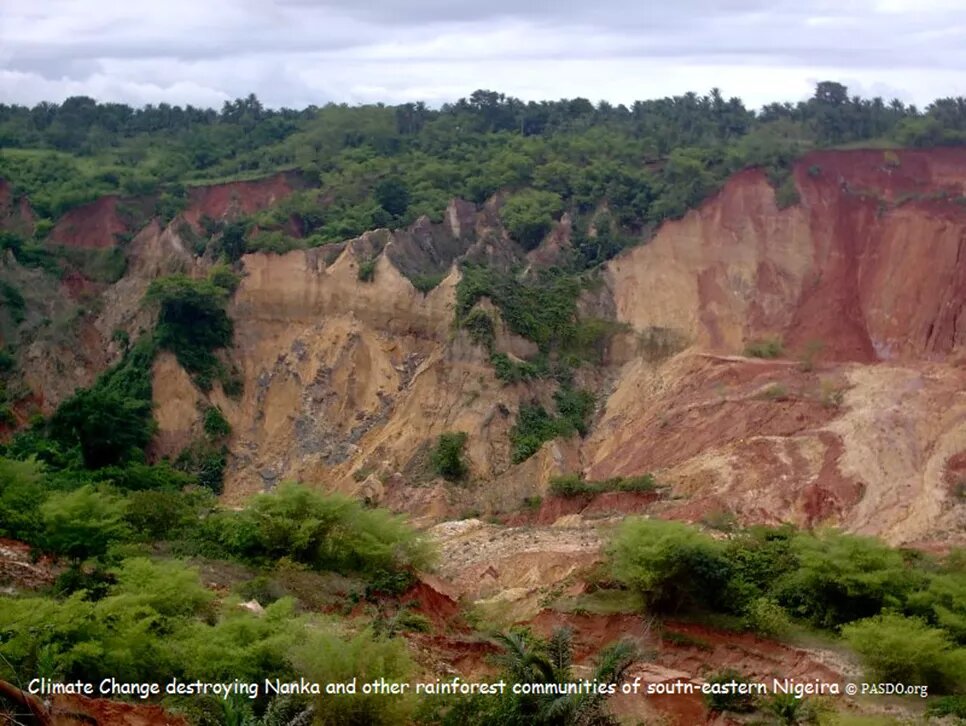
Up until this moment, I am being haunted by the experience I had with a young girl of about 15, Kosidichimma (Kosi)*, whom I met in year 2009, during my research visit to Nanka, a community in Anambra State that has become synonymous to gully erosion (because it hosts the highest number of very terrific gully erosion sites in Nigeria).
My visit was in a calm morning, around the period of September when the rains were on a slight break, and Kosi was around to help me find my way through one of the gully sites in Amakor, Nanka.
When I inquired as to the reason she was at home during school hours, I got to understand that Kosi had dropped out of school, because her dad –a palm wine tapper and subsistence farmer– lost his farmland and palm crops to expanding gullies, and could no longer afford to pay her school fees.
The loss of livelihood also affected other siblings, but some of her elder brothers had migrated in search of greener pastures, to destinations I wasn’t privileged to know.
To cut the story short, I finally left Nanka, but not without Kosi’s question; a question that keeps recurring in my brain, and is still as clear as it was six years ago; “what will you do with all the things you find out?”
Due to climate change, there has been a twenty percent increase in rainfall over southern states of Nigeria in the last four decades.
A direct result of this is thriving gully erosion activities, which come about as the rise in rainfall overwhelms the loose and vulnerable soil formations that characterize the landscape of south-eastern Nigeria.
Propagated by surface and sub-surface flooding, and usually accompanied by landslides, gully erosion has continuously taken its toll on agriculture, which is the mainstay of rural livelihood and economy.
Countless number of houses cave in; farmlands and livelihoods are devastated; water table continues to lower and stream channels are obstructed; public infrastructure like electric, communication and pipe lines, as well as access roads get damaged (see side picture); the lush ecosystem biodiversity that characterize the region is diminishing; and the destinies and dreams of millions of people on that side of the planet are increasingly put at risk.
Let us stand up for Nanka and other communities like it.
With every resource at our disposal – physical strength and loud voice, intellect, connections, finances and media (print, visual and social) – let us stand up for Kosi and thousands of other innocent children whose educational dreams have been badly jeopardized.
Let us up the game for Kosi!
REFERENCES
Ezenekwe Elochukwu (2015). Climate Change and its Implications for Anambra State; A Policy Briefing Presented to the Management of the Anambra State Ministry of Environment on August 4, 2015. Awka, Anambra State